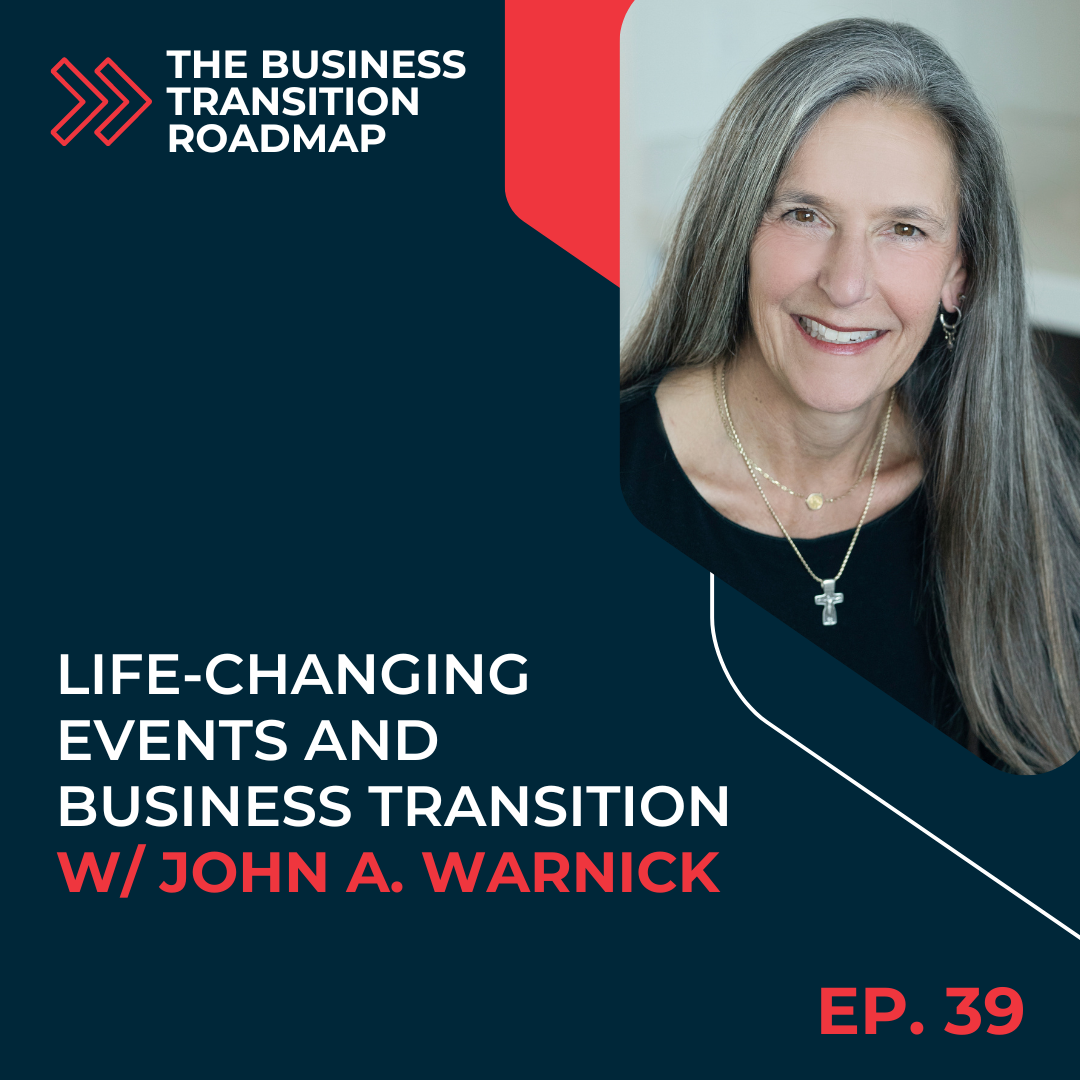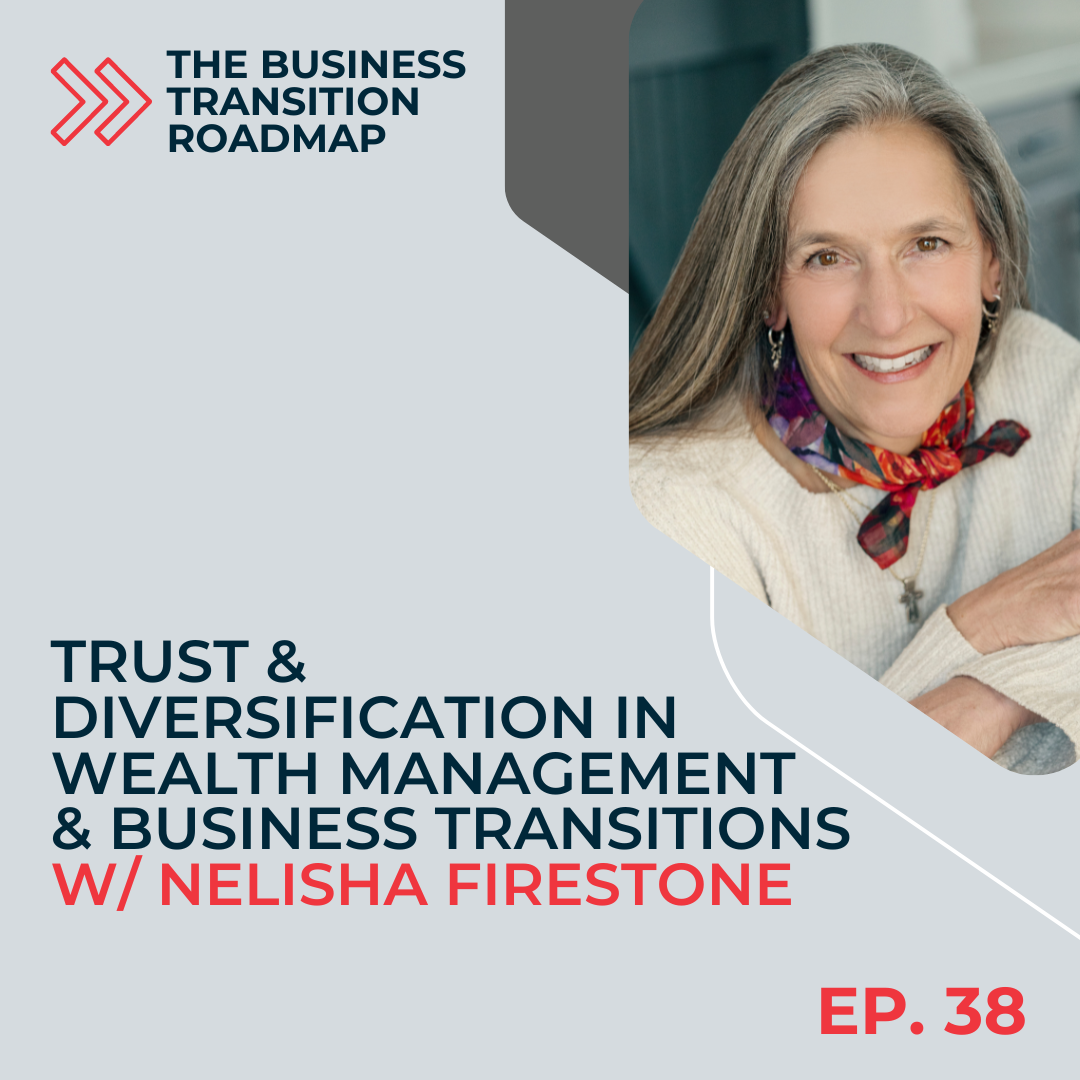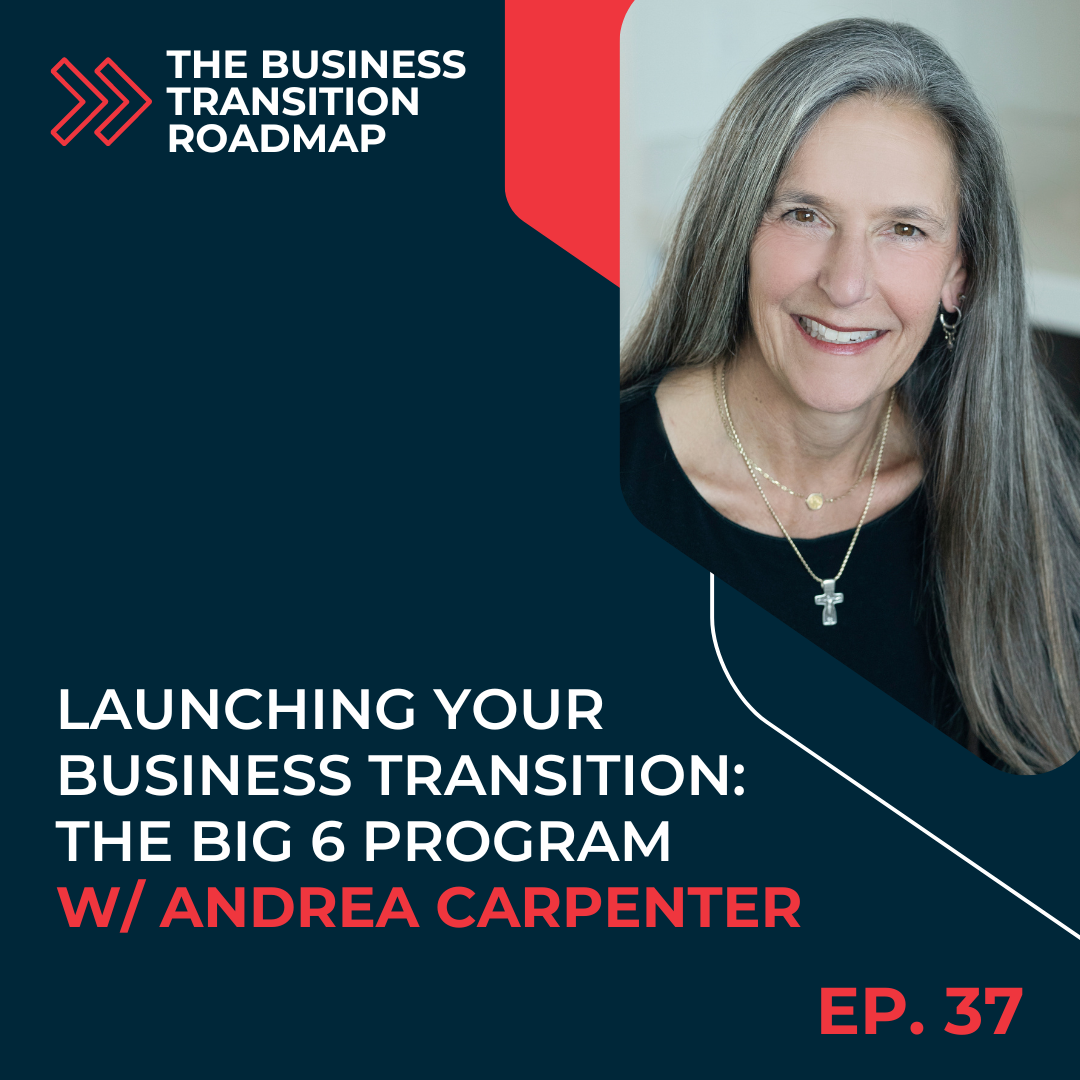Episode Description:
As a business owner, the skills that you build during the beginning of your business are all about growing and developing the company you have created. When you then start a transition and pass on the business, the way you use those skills will need to change to fit a new role: the teacher and mentor to your successor. Tap or click the play button below to listen to: 6 Owner Qualities to Improve the Odds of a Successful Transition.
In this episode, we’re talking about the 6 qualities owners need to have the best chance at a successful transition journey. Inspired by courage. Inspired by Innovation and Entrepreneurship by Peter Drucker, these qualities are essential to prepare your successor and your business for the best transition possible.
Get Innovation and Entrepreneurship by Peter Drucker: https://www.amazon.com/Innovation-Entrepreneurship-Peter-F-Drucker/dp/0060851139
Connect with Elizabeth and the Transition Strategists:
Website: https://transitionstrategists.com/
Facebook: https://www.facebook.com/thetransitionstrategists
LinkedIn: https://www.linkedin.com/company/transitionstrategists/
This episode was produced by Story On Media & Marketing: https://www.successwithstories.com.
6 Owner Qualities to Improve the Odds of a Successful Transition Transcript
[00:00:00] Elizabeth Ledoux: Hi, and welcome back to the podcast Today what we’re gonna focus on this time is six owner qualities that improve the odds of a successful transition. You know, Peter Drucker, he is one of my favorite authors, and he’s also one of the world’s best known business management thinkers, and he wrote in his book, That entrepreneurship is not natural.
[00:00:30] It’s not creative and it’s work. And when I read that, I thought about how that’s so true as in business transition also, um, you’re still an entrepreneur as you travel through this business succession and transition world and to completely. put a business in somebody else’s hands, um, that is completely capable of taking the business forward without you, um, without any.
[00:01:06] Of your vision without any of your knowledge, without any of your financial backing, without any of your wisdom and your history with the business to be able to do that. Um, that is not natural. Your natural ability is actually to be a builder and to grow the business and to, um, figure out problems and do all of those things that’s natural for you.
[00:01:37] Transitioning a business is not natural. Um, it is not creative. It actually can, it’s actually holding things in place while you’re trying to do it, and it is a lot of work. So, Peter Drucker put it, well, I just transitioned it into business succession and transition position
[00:01:58] when you’re trying to figure out a strategy to transition your business. You’ve used some of the same skills, um, and you use some of the same qualities that you have as an entrepreneur. So the same things that you’ve used in your 15 or 20 years that you’ve had this business, you’re gonna use those again.
[00:02:19] You’re just gonna use ’em in a different way. And then you’re gonna also hone in on some other skills at a higher, higher, a much higher level. So the six qualities are courage. Generosity, patience, wisdom, adaptability, and humility. If you think about courage, your courage becomes different. Um, before you had the courage to invest the money, keep the money invested, bring on new people when you weren’t sure you needed them.
[00:03:00] Take a leap when you weren’t sure if it was, if you were gonna land quite in the right place, but you did it anyway. They might have, they might have been calculated risks, and you had the courage though to do that. In this case, you’re gonna have the courage to walk away, the courage to let go, and the courage to help somebody else be as good or better than you.
[00:03:22] Um, you may say, oh gosh, that sounds I could do that. I could, I would love to have somebody who would be better than me. However, when you really get into that situation, it’s almost bittersweet because you’re so proud of them being better than you, and you’re also going, wow. , they’re better than me. And sometimes my next adventure isn’t quite clear.
[00:03:45] And, um, it’s a little scary. So courage, courage to be able to do that. Um, generosity, when you’re doing an internal transition, again to a, any kind of a successor who could be partners, you’re leaving, they’re staying. Um, could be to employees, could also be to family members, children, um, nieces, nephew.
[00:04:07] sisters, whatever, generosity’s a big deal because typically the people that are coming in don’t have everything that they need to be able to buy the business from you. And so you’re gonna be giving away not only, uh, Some of your time, if not a lot of your time, helping them to grow and learn. You also potentially could be giving away a little bit of the money because uh, whenever you give away your time, just as you know a fact, you’re also, uh, giving away dollars cuz you’re worth a lot.
[00:04:44] Anyway, generosity, patience. You’re gonna use that at, at a much, much higher level than you’ve ever probably used it before, because you’re gonna be watching these successors, um, make mistakes. Um, again, going back to generosity, they’re gonna make a mistake that you probably would know better. Might cost the company a little bit, but, um, it’s okay.
[00:05:06] We’re going to be generous with that because we’re gonna allow them to. Make mistakes. We’re gonna allow them to think differently. We’re gonna spend more time with them, we’re gonna walk them through our thinking. So patience is huge. And I will say your patience gets tested even more if it’s your children.
[00:05:25] You have such high expectations of kids. Um, high expectations of employees too, coming in as successors, but I will tell you that parents have even higher expectations of what they want. Want their kids to be and what they expect their kids to do. So, patience, wisdom, you’ve used your wisdom in your company for years.
[00:05:49] This wisdom is a little bit different. wisdom in the company that you’ve used for years sometimes just comes naturally. Um, you just get up in the morning, you know how the business runs. It’s just the way that it happens, and you do things so much on automatic that you actually don’t know all the steps that you take in order to actually get something done.
[00:06:15] So in this wisdom, You’re gonna start transferring wisdom, transferring wisdom of why you make decisions the way you do. What makes it so that you know your intuition is telling you that we’re coming onto hard times, or things are gonna be good, and it’s okay to make that leap or that launch and go for it.
[00:06:37] You know, when do you have to hold back? When can you go forward? All of this wisdom is sort of embedded in you, so your wisdom. You’ll want to unpack that, and that’s gonna take some extra time for you to do that as well. You actually don’t know how you do a lot of things. You’re great at it, you just don’t know how you do it.
[00:06:58] Adaptability, adaptability is gonna be a big one for you. The adaptability, being able to move with your successors. because you’re at some point going to be following them. That’s what you want. You want them to lead, you wanna follow, but you’re trying to keep up with them and sometimes. They’re younger, they have more energy, they’re moving faster, and it’s like, oh my gosh, I can’t keep up with you.
[00:07:26] So the adaptability and your ability to do that is gonna be crucial so that you can keep up and make sure that you’re on target with them, cuz you won’t be deciding the pathway. At some point they will. And then humility. Humility, just, um, you know, understanding who you are and being humble in the world.
[00:07:48] That one’s a big one, because without that humility, what happens is sometimes successors they get, instead of being built up knowing that they can do it, they’re beat down. And it has to do with the humility and your humility and also your support of them, because they’re gonna be looking to you to see if they’re doing it the right way, and your humility is going to be crucial for their success.
[00:08:19] Owners tend to have these qualities. They’re just very, they’re tested at a very, very high level. When you go through a transition, an internal transition is probably the hardest road that a business owner could take. Um, sometimes it’s easier, maybe more emotionally difficult to shut down the business and just stop.
[00:08:43] Sometimes it’s easier to just go sell to a third party. You have your money, um, got the cash out of the business for what it’s worth, and you are done done within a year even, or two years if you have to stay on with that company for a little bit to help ’em run it. But for all intensive purposes, you’re finished.
[00:09:03] These internal transitions, they take extra time and there are a lot of moving parts in them. So, We believe that it’s the hardest road that an owner can take. It also though, could be one of the most rewarding roads that an owner can take, especially if you end up taking care of the business. It thrives forward.
[00:09:25] The people are in place, they’re happy, the culture’s continuing. And, um, yeah, the values continue and, and again, that business continues to thrive forward. So, Your skills are gonna shift a little bit. Your skills are gonna move from being that builder, developer, builder, grower of the company to being the mentor teacher.
[00:09:48] Hands off, might take a year or two to be able to do that, but it’s kind of fun when you get there and all of those skills are things that you can learn. I think it’s one of the most rewarding things that owners can do to be able to put the hands. To put in the hands of a, a true successor, somebody who can build and grow it going forward, the business that was started by you, or purchased by you and grown by you.
[00:10:16] So, to wrap this up, what I’d like to leave you with and ask you are what qualities do you have based on these six qualities? Where are you? With those six and which ones do you think you might need to work on a little bit in order to create the person that you need to be so that you can help this business transition that you want so much to be a success.
[00:10:43] Thanks for joining me today, and I’ll see you next time.
The Business Transition Roadmap with Elizabeth Ledoux
How do communities thrive? When businesses experience healthy growth and transition. Join CEO of The Transition Strategists, Elizabeth Ledoux as she and her guests identify what makes a successful business transition roadmap. If you know you want to transition or exit your business “one day”, today is the right day to start planning. This show will give you the roadmap.




